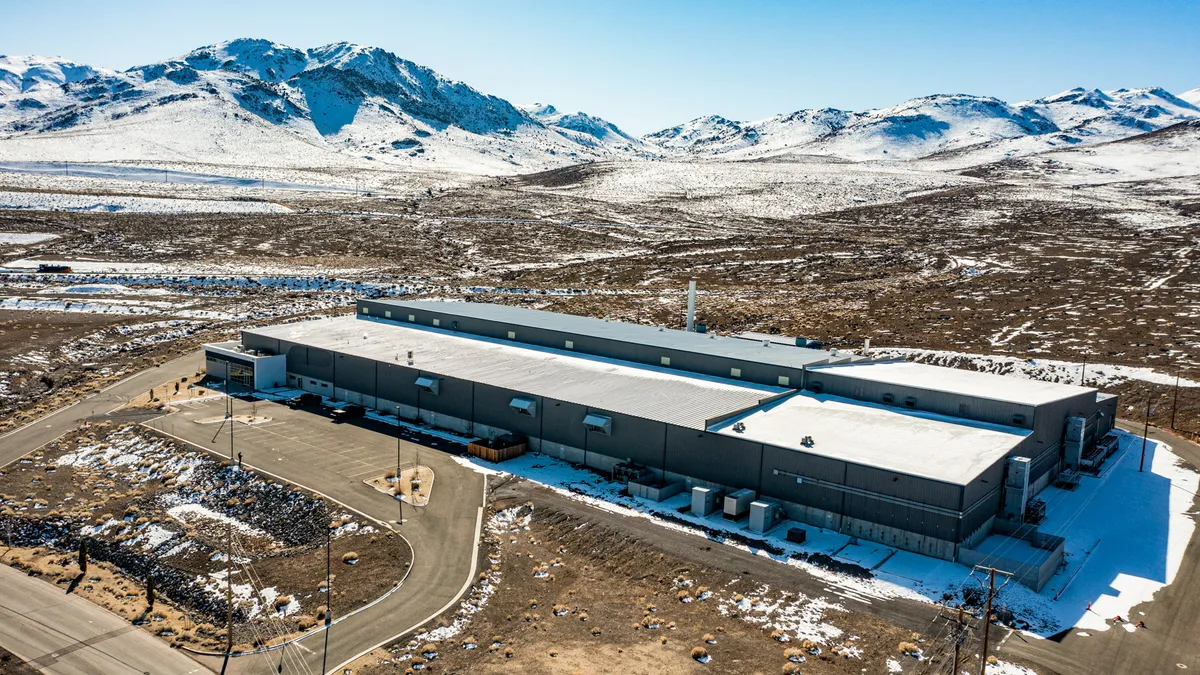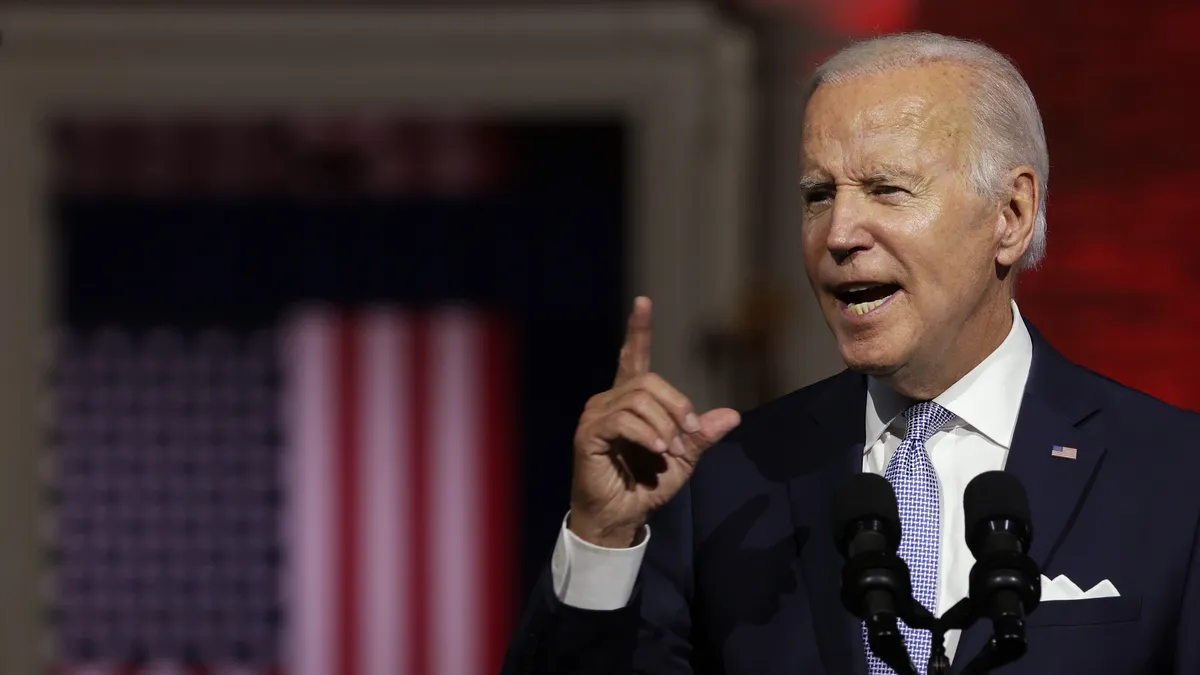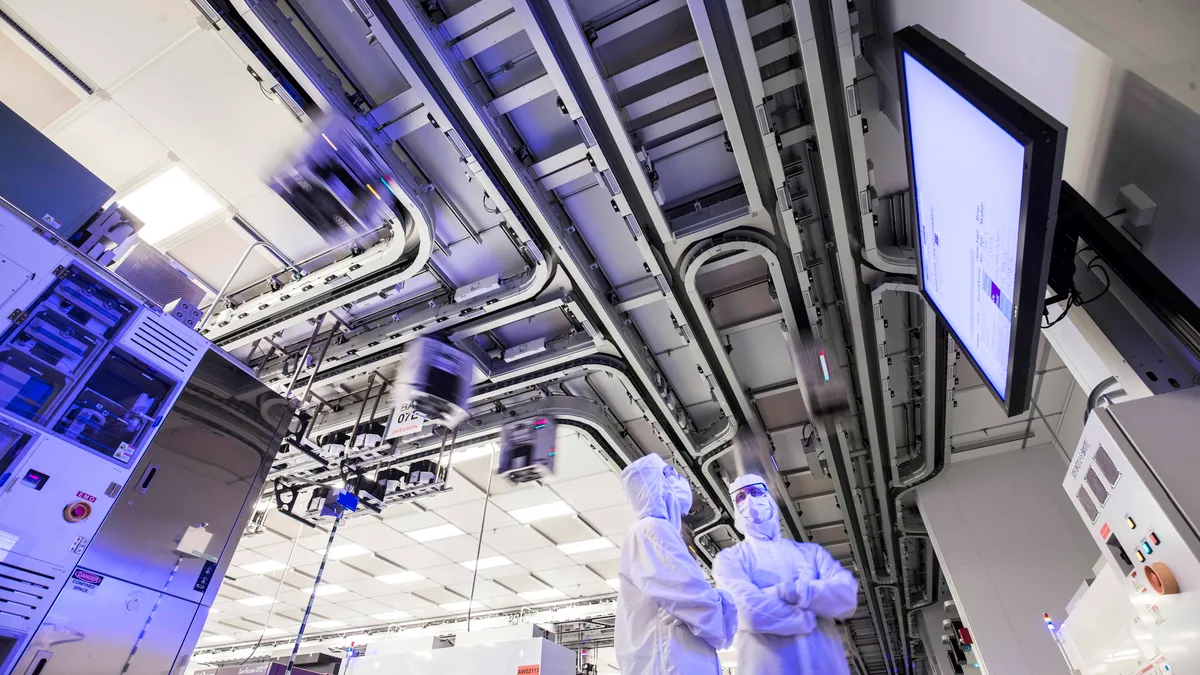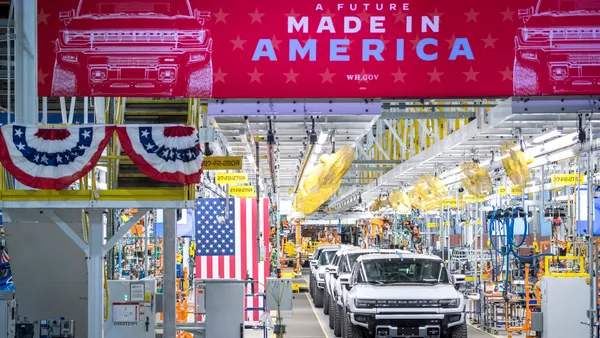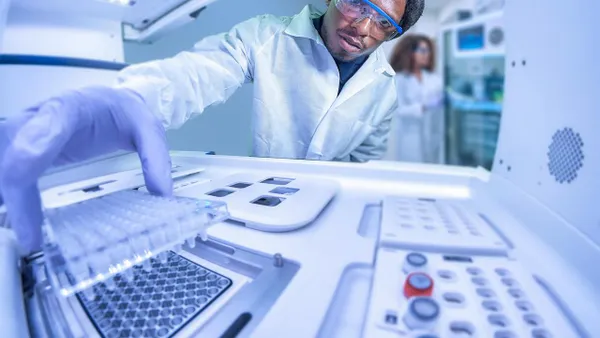Dive Brief:
- American Battery Technology Company began operations at its first commercial-scale lithium-ion battery recycling facility in McCarran, Nevada.
- Once fully operational, the 137,000-square-foot facility will have capacity to process 20,000 metric tons of battery feedstock materials per year.
- The site is opening in two phases, with the first to process battery feedstock materials into recycled products including copper, aluminum, steel, a lithium intermediate and a black mass intermediate material. The second phase will process the lithium intermediate material into battery-grade lithium hydroxide and black mass into battery-grade nickel, cobalt, manganese and lithium hydroxide products.
Dive Insight:
ABTC’s facility marks a milestone in the company’s efforts to recycle domestic battery materials.
The battery material maker purchased the McCarran, Nevada, site in March as part of its plan to grow its production network. ABTC accelerated its timeline to open the facility, installing the first equipment within a month of gaining access to the plant and opening operations less than six months later, COO Andrés Meza said in a statement.
The company is also currently completing construction on a pilot recycling battery plant in Fernley, Nevada.
"By securing our move-in-ready industrial facility in early 2023, we were able to greatly accelerate our timeline to operations, and the last step of receiving approvals for the updated operational permits for our specific internally-developed processes were received over the past week,” CEO Ryan Melsert said in an Oct. 11 statement.
As part of the first phase of operations, ABTC will partner with supply chain platform TechMet-Mercuria to sell and market the black mass intermediate material through a $20 million pre-purchase of its recycled battery metal products. ABTC plans to process this material internally in later phases of operations.
The McCarran facility will also take the battery scrap and unused materials from Nanotech Energy’s manufacturing facility in Chico, California. From there, ABTC will recover battery materials like nickel, cobalt and manganese by separating, recovering and purifying the materials in order to meet battery-grade material specifications.
ABTC is working with the Department of Energy for funding for its new production plans. The company received a $2 million battery recycling grant from the U.S. Advanced Battery Consortium, comprised of the Energy Department, GM, Ford and Stellantis, as well as secured a $20 million grant from the department to further develop battery recycling technologies.



